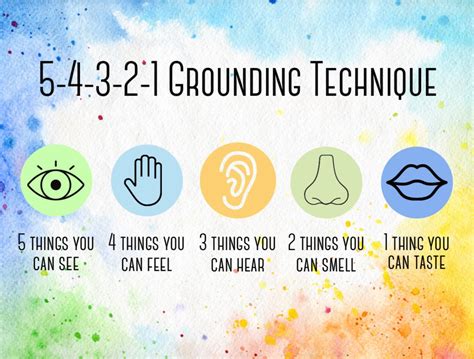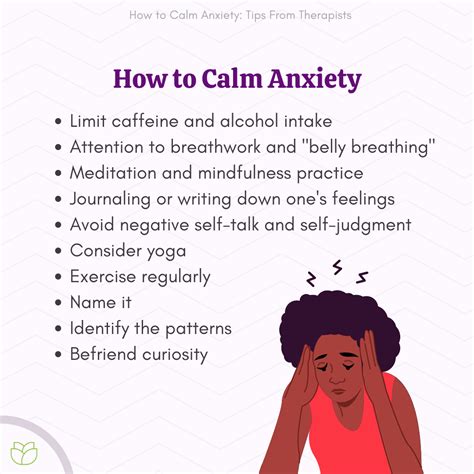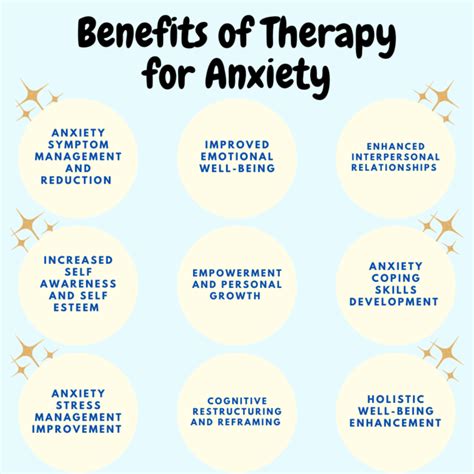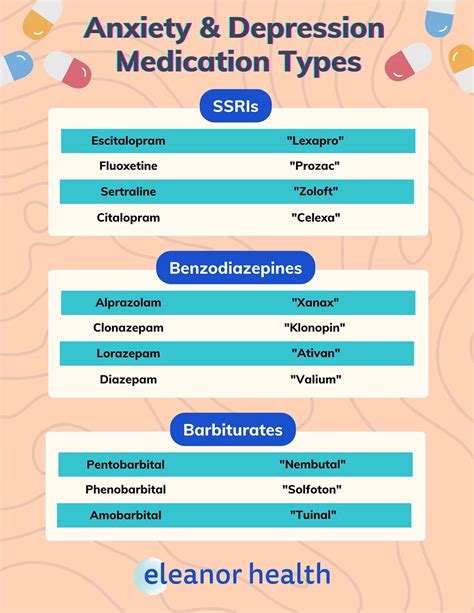Intro
Learn how to calm anxiety with effective techniques, managing stress and panic attacks through relaxation methods, deep breathing, and mindfulness exercises to achieve calmness.
Anxiety is a common mental health condition that affects millions of people worldwide. It can manifest in different forms, such as generalized anxiety disorder, panic disorder, social anxiety disorder, and phobias. Anxiety can interfere with daily life, making it difficult to concentrate, sleep, and enjoy activities that were once pleasurable. The good news is that there are many effective ways to calm anxiety and manage its symptoms. In this article, we will explore the importance of addressing anxiety, its causes and symptoms, and provide practical tips and strategies to help individuals calm their anxiety.
Anxiety can have a significant impact on a person's quality of life, relationships, and overall well-being. When left unaddressed, anxiety can lead to depression, substance abuse, and other mental health conditions. Furthermore, anxiety can also affect physical health, increasing the risk of cardiovascular disease, diabetes, and other chronic conditions. Therefore, it is essential to take anxiety seriously and seek help if symptoms persist. By understanding the causes of anxiety and learning effective coping mechanisms, individuals can reduce their anxiety levels and improve their mental health.
Anxiety is a complex condition, and its causes can vary from person to person. Some common causes of anxiety include genetics, brain chemistry, life experiences, and environmental factors. Stress, trauma, and significant life changes can also trigger anxiety. Additionally, certain medical conditions, such as thyroid disorders, adrenal gland tumors, and heart conditions, can contribute to anxiety. Understanding the underlying causes of anxiety is crucial in developing an effective treatment plan. By identifying the root causes of anxiety, individuals can work with mental health professionals to develop a personalized plan to manage their symptoms.
Understanding Anxiety

Symptoms of Anxiety
The symptoms of anxiety can vary depending on the individual and the type of anxiety disorder. Common symptoms of anxiety include feelings of fear, worry, and apprehension, as well as physical symptoms such as rapid heartbeat, sweating, and trembling. Anxiety can also affect sleep, appetite, and concentration, making it difficult to perform daily tasks. In severe cases, anxiety can lead to panic attacks, which are intense episodes of fear or discomfort that can be debilitating.Causes of Anxiety

Brain Chemistry and Anxiety
Brain chemistry plays a significant role in the development of anxiety. Neurotransmitters, such as serotonin and dopamine, help regulate mood and emotions. Imbalances in these neurotransmitters can contribute to anxiety. Additionally, the brain's stress response system, also known as the hypothalamic-pituitary-adrenal (HPA) axis, can become overactive in individuals with anxiety, leading to an excessive release of stress hormones such as cortisol.Calming Anxiety

Relaxation Techniques
Relaxation techniques, such as progressive muscle relaxation, visualization, and yoga, can help calm the body and mind. These techniques involve focusing on the present moment and letting go of worries about the past or future. By practicing relaxation techniques regularly, individuals can reduce their anxiety levels and improve their overall well-being.Therapy for Anxiety

Cognitive-Behavioral Therapy (CBT)
CBT is a type of therapy that focuses on identifying and changing negative thought patterns and behaviors that contribute to anxiety. This type of therapy is based on the idea that thoughts, feelings, and behaviors are interconnected, and that changing one aspect can have a positive impact on the others. By learning to recognize and challenge negative thought patterns, individuals can reduce their anxiety levels and improve their overall well-being.Medications for Anxiety

Natural Remedies for Anxiety
Natural remedies, such as herbal supplements and aromatherapy, can also be effective in managing anxiety. Herbal supplements, such as passionflower and kava, can help calm the body and mind. Aromatherapy, such as lavender and chamomile, can also promote relaxation and reduce anxiety levels. By incorporating natural remedies into their daily routine, individuals can reduce their anxiety levels and improve their overall well-being.Conclusion and Next Steps

We invite you to share your thoughts and experiences with anxiety in the comments below. If you have found effective ways to manage your anxiety, please share them with us. By sharing our experiences and knowledge, we can help each other manage anxiety and improve our mental health.
What are the symptoms of anxiety?
+The symptoms of anxiety can vary depending on the individual and the type of anxiety disorder. Common symptoms of anxiety include feelings of fear, worry, and apprehension, as well as physical symptoms such as rapid heartbeat, sweating, and trembling.
How can I calm my anxiety?
+There are many effective ways to calm anxiety, including lifestyle changes, therapy, and medications. Relaxation techniques, such as progressive muscle relaxation, visualization, and yoga, can also help calm the body and mind.
What is cognitive-behavioral therapy (CBT)?
+CBT is a type of therapy that focuses on identifying and changing negative thought patterns and behaviors that contribute to anxiety. This type of therapy is based on the idea that thoughts, feelings, and behaviors are interconnected, and that changing one aspect can have a positive impact on the others.
Can natural remedies help with anxiety?
+Yes, natural remedies, such as herbal supplements and aromatherapy, can also be effective in managing anxiety. Herbal supplements, such as passionflower and kava, can help calm the body and mind. Aromatherapy, such as lavender and chamomile, can also promote relaxation and reduce anxiety levels.
How can I find a mental health professional to help with my anxiety?
+You can find a mental health professional to help with your anxiety by asking your primary care physician for a referral, searching online for therapists in your area, or contacting your insurance provider for a list of in-network providers.
